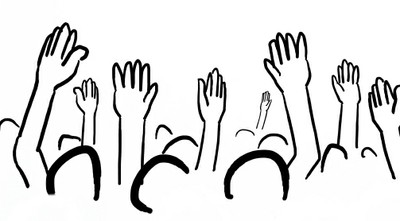
Debates lead to consensus
HAVANA — Radical processes of change in structure, such as revolutions, happen very rapidly and abruptly. The Cuban revolution is an example of such agility because, in a three-year period, it practically changed the country and the economic structures established in the past.
For their part, the processes of change or reform of the established system zig-zag along with stops and adjustments. They don’t imply radical systemic changes. As in the case of the Actualization Project, they aspire to greater efficacy and modernization of the established status. Such development implies a release from the absolute control maintained by the state apparatus, a breakup of the actors’ functions (heretofore considered as essential) and the appearance of new economic subjects and forms of property and management, among other changes and novelties.
However, in the processes of radical change (revolutions) and reform, the basic element is the people. Both need their real and effective participation; without it, the changes would be foreign to them, creating a lack of commitment and apathy.
During the key period of the post-1959 years, there existed an undeniable participation on the part of the citizens, and information was given out publicly about the changes, their methods and objectives. Without the information and explanations given by leader Fidel Castro and the publication of debates among high-ranking government figures who disagreed on economic grounds — such as the debates between Comandante Ernesto Che Guevara and Carlos Rafael Rodríguez or those held by Blas Roca and Alfredo Guevara over issues of culture in its broadest meaning — history would probably not have been the same.
Those debates were published in the existing media and the citizens followed them with great attention. Newspapers were sold out in a flash. The citizens and their destiny were the topic.
Cubans who lived in that period could form a better-informed opinion of what the outlook would be; they could form their own ideas and accept the revolutionary commitment. There was neither apathy nor rejection of politics. There was also a clearer perception that the socialist line of thought allowed different approaches to vital issues.
Information, public debate and open discrepancy were not only the citizens’ right but also an essential instrument in favor of the process.
For the past nine years, Cuba has followed the inescapable road of updating its economic model to build socialism, an effort that Frei Beto recently defined as the path from all-embracing state control to socialization.
About this process, and in the face of diverse ideas possible within socialism, varied opinions exist. Just putting our ear to the ground, we hear the heartbeat of answers that don’t contradict the essence of the socialist objectives.
Reproaches and displeasure don’t necessarily lead to integral reversion. On the contrary, depending on how they are they are treated, they are ingredients for consensus. This is a need expressed by President Raúl Castro Ruz in his speech before the recent special session of the National Assembly of the People’s Power.
Consensus in society is essential to speed up the programmed changes. That’s how we understand the President’s statement.
What happens on the street, in think tanks, in the academic world or in some Internet outlets, that variety of options within socialist thought and action, does not appear in the national and provincial media. The evidence is printed daily in newspapers or shown on televised newscasts.
Mere summaries of important meetings alienate those of us who should be, and want to be, active objects of the Actualization Project. Some dissenting statements and options within the official spheres are unknown to a majority of us Cubans, an ignorance that unwittingly opens the door to those who want the system to implode by paralyzing the process of change. Above all, that ignorance injects into many of us apathy and indolence, enabling those who hope to totally dismantle that process.
National TV appearances, debates in the media, unscheduled interviews and dissemination of the variables and possibilities of the Actualization Project do not harm an informed participation; rather, they foster it. We must air the diversity within socialism in order to create a consensus. Time and reality are essential.


